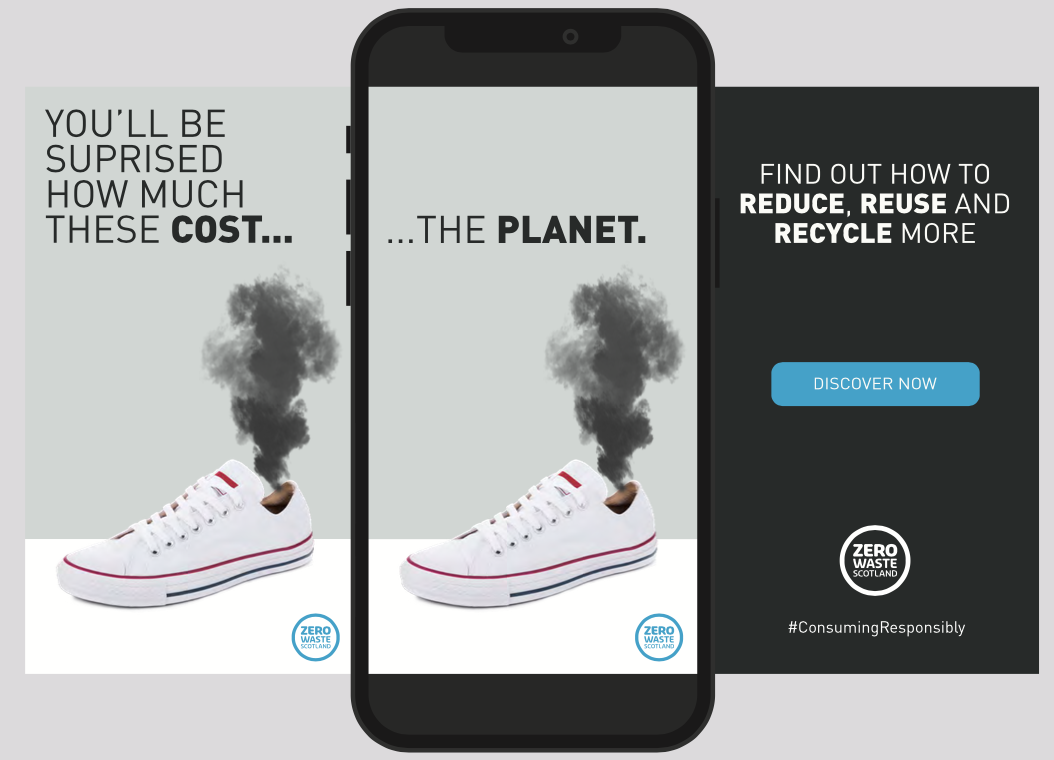
Carbon from Consumption
Problem: Individuals don’t think they have a role to play in the climate emergency.
Our research showed that the general public is concerned about climate change, with most adults expressing significant concern. But most also believe we can’t do anything in comparison to government and big business, or that we already do enough. There’s a societal deferment of carbon responsibility to the greater powers.
And yet, around 80% of an individual’s carbon footprint comes from our own consumption.
Very few people were aware of this (<20%) and it was reflected in their purchasing behaviour.
Insight: We don’t change what we can’t see. The common misconception is that our carbon footprint is only reduced through recycling, driving less, and switching the lights off. These are all the tangible things where we can see something solid like car fumes, or a light bulb.
But what we can’t see is the carbon cost of a new laptop, pair of jeans, or the excessive food we buy that’s left to rot in the fridge.
Strategy: Show that Carbon is our invisible waste.
Idea: We decided to make the carbon cost of every item we consume blindingly obvious, as in your face, and as unavoidably present that people cannot forget about the carbon cost of the things they consume.
But not just aware, we needed to make the invisible turn visible at the moments it matters, right when we’re thinking “it might be time to get a new...”.
Comms: This thinking directed our channel strategy, leveraging digital channels to pop up in those final moments of purchase to make people really think about the full cost of what they were buying.
Results: Awareness across the nation of the carbon cost of consumption jumped to almost a third (33%) and we saw stark changes in circular behaviours - people claiming they’d buy fewer ‘new’ items went from 21% to 51%, keeping old items for longer went from 33% to 64%, and seeking to repair broken items went from 26% to 53%.
Conclusions: We showed that individuals do in fact have a major role to play in tackling the climate emergency.
By repositioning carbon from an intangible, abstract topic they see on the news, to the waste from the products we consume - and by giving it an unmissable visual profile - we prompted a societal shift in mindset towards the role of responsible consumption in tackling the climate crisis.
Awards: This campaign won Bronze in the Strategy - Planning and Insights Category as well as being a finalist in the Integrated Campaign Category at the Marketing Society Awards 2022.


